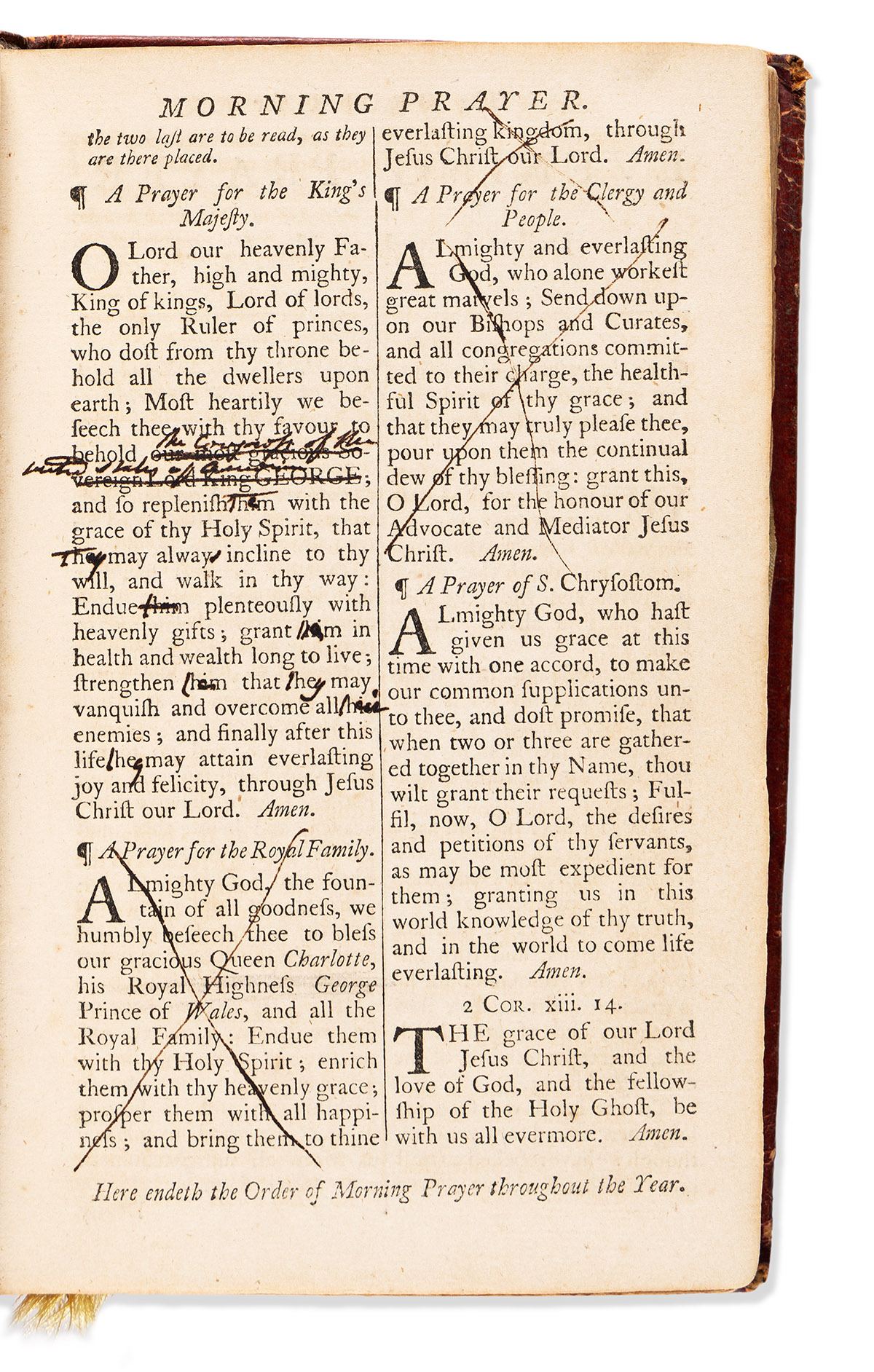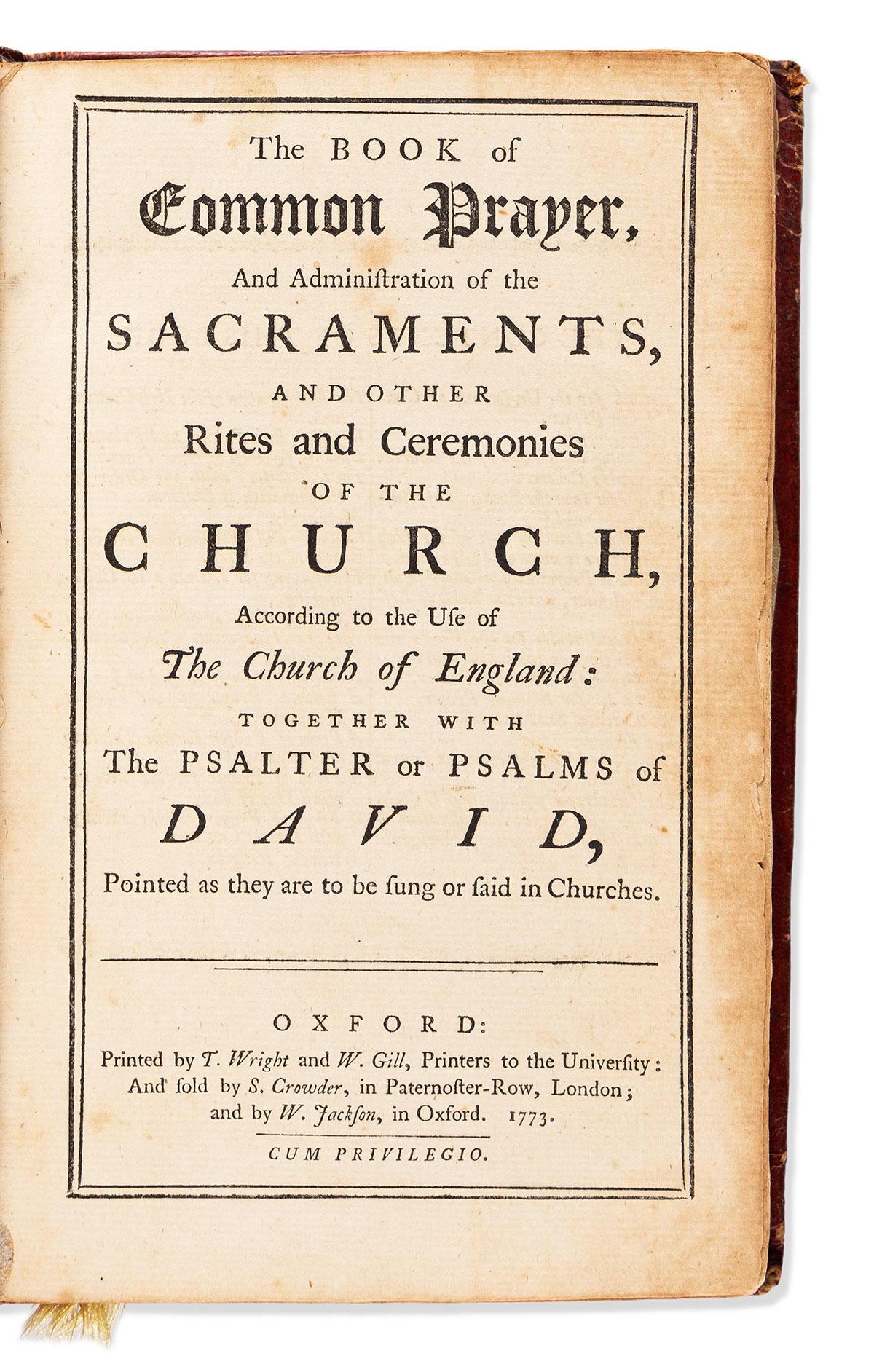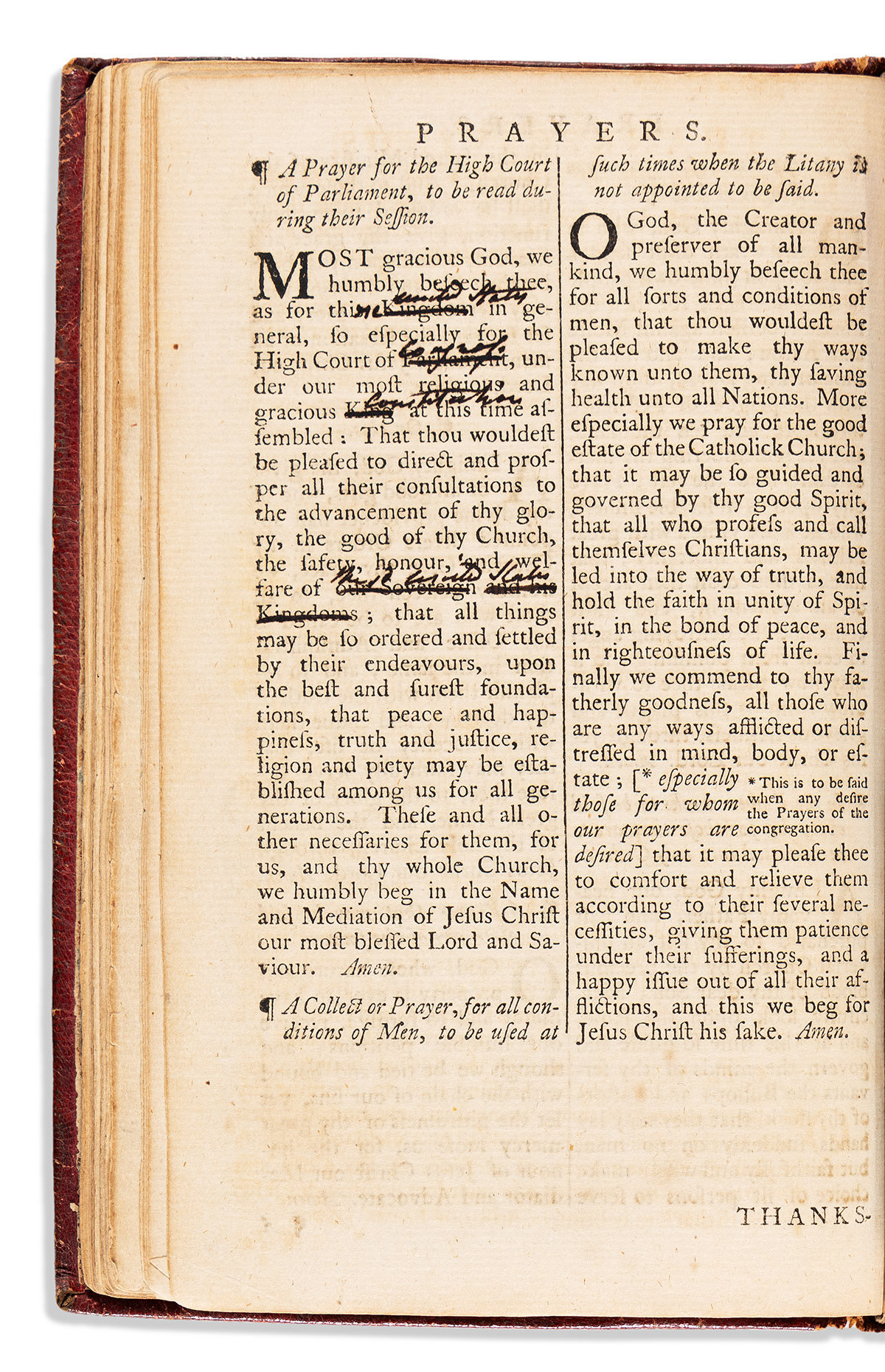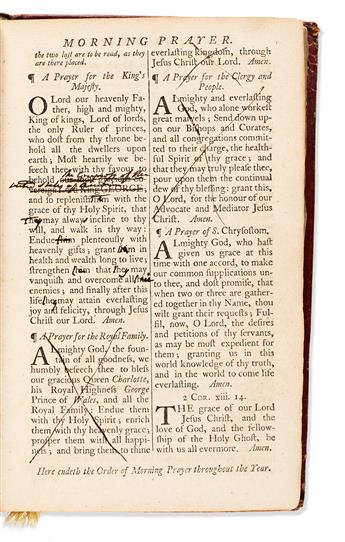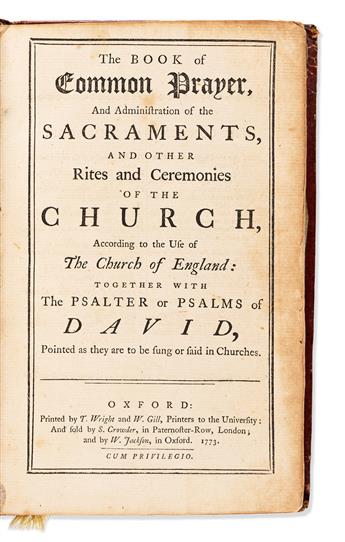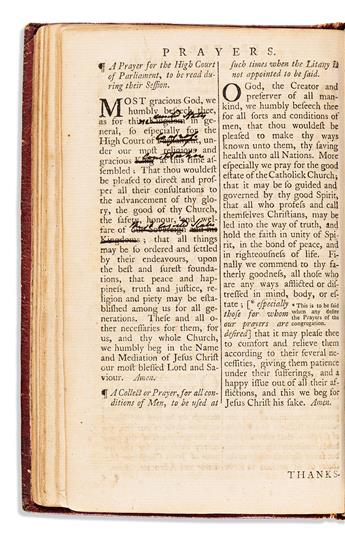Sale 2675 - Lot 29
Price Realized: $ 7,000
Price Realized: $ 8,750
?Final Price Realized includes Buyer’s Premium added to Hammer Price
Estimate: $ 2,500 - $ 3,500
(AMERICAN REVOLUTION.) The Book of Common Prayer . . . of the Church of England, annotated for American use, and bound with The Whole Book of Psalms Collected into English Metre by the same printers. [392, 120] pages. 8vo, gilt red calf, minor wear; early inked manuscript corrections to 11 pages, lacking front free endpaper, lacking corners of 2 leaves; signed by early owner John Burgwin on front flyleaf and leaf A1. Three unrelated later textile pieces laid in. Oxford, England: T. Wright and W. Gill, 1773 and 1771
Additional Details
The Church of England's Book of Common Prayer contains numerous professions of loyalty to Great Britain's sovereign. This was of course a conflict for Anglican church members who followed the Patriot cause in the Revolution, and was a cause of separation into the Episcopal Church. Until the 1786 publication of the first Episcopal Book of Common Prayer, these Americans were stuck with the Anglican version.
This copy of a 1773 London printing, owned by a North Carolina family, contains all of the standard references to George III--each of them tidily crossed out or corrected in manuscript to reflect American independence. For example, on the recto of leaf A5, the original "Prayer for the King's Majesty" is offered to "our most gracious Sovereign Lord King George," which is corrected in manuscript to "the Congress of the United States of America," and the corresponding "Prayer for the Royal Family" is simply crossed out. In the Litany on the verso of leaf B2, prayers for the royal family and the nobility are also crossed out. On the verso of B8, prayers for "this Kingdom" are changed to "these United States." In total, 11 pages have manuscript corrections.
Provenance: This copy bears the ownership inscription of North Carolina merchant John Burgwin (1731-1803), matching the signature found on his 1782 marriage certificate. He was born into an affluent British family but emigrated to the colonies by 1750 after his elder brother inherited the family estate. He became a successful lawyer and held numerous public positions in the Wilmington, NC area, including town commissioner and member of the colony's General Assembly. His home is now the Burgwin-Wright House museum. During the Revolution, he "apparently attempted to tread the narrow path between Whig and Tory" (per the Dictionary of North Carolina Biography). When the British occupied Wilmington in 1781, he fled the country for Europe, including a visit to England in 1782--where he married his second wife. He was welcomed back to Wilmington after the war and resumed life as a prosperous merchant and lawyer.
His son George William Bush Burgwin (1787-1854) was a devout Episcopalian who "led his family in worship from the Book of Common Prayer on Sundays at the Hermitage" (also per the Dictionary of North Carolina Biography).
The book was acquired by the consignor's mother, an antique collector, circa the 1960s. She exhibited it at an antiques show at the Wright Patterson Air Force Base Officers' Wives Club, as described in the Dayton (OH) Daily News of 5 March 1969.
This copy of a 1773 London printing, owned by a North Carolina family, contains all of the standard references to George III--each of them tidily crossed out or corrected in manuscript to reflect American independence. For example, on the recto of leaf A5, the original "Prayer for the King's Majesty" is offered to "our most gracious Sovereign Lord King George," which is corrected in manuscript to "the Congress of the United States of America," and the corresponding "Prayer for the Royal Family" is simply crossed out. In the Litany on the verso of leaf B2, prayers for the royal family and the nobility are also crossed out. On the verso of B8, prayers for "this Kingdom" are changed to "these United States." In total, 11 pages have manuscript corrections.
Provenance: This copy bears the ownership inscription of North Carolina merchant John Burgwin (1731-1803), matching the signature found on his 1782 marriage certificate. He was born into an affluent British family but emigrated to the colonies by 1750 after his elder brother inherited the family estate. He became a successful lawyer and held numerous public positions in the Wilmington, NC area, including town commissioner and member of the colony's General Assembly. His home is now the Burgwin-Wright House museum. During the Revolution, he "apparently attempted to tread the narrow path between Whig and Tory" (per the Dictionary of North Carolina Biography). When the British occupied Wilmington in 1781, he fled the country for Europe, including a visit to England in 1782--where he married his second wife. He was welcomed back to Wilmington after the war and resumed life as a prosperous merchant and lawyer.
His son George William Bush Burgwin (1787-1854) was a devout Episcopalian who "led his family in worship from the Book of Common Prayer on Sundays at the Hermitage" (also per the Dictionary of North Carolina Biography).
The book was acquired by the consignor's mother, an antique collector, circa the 1960s. She exhibited it at an antiques show at the Wright Patterson Air Force Base Officers' Wives Club, as described in the Dayton (OH) Daily News of 5 March 1969.
Exhibition Hours
Exhibition Hours
Aliquam vulputate ornare congue. Vestibulum maximus, libero in placerat faucibus, risus nisl molestie massa, ut maximus metus lectus vel lorem.



